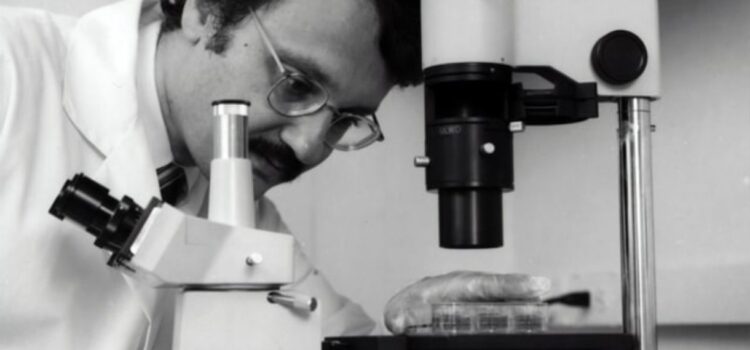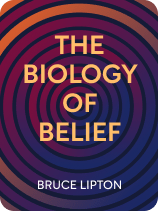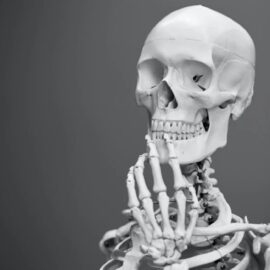

This article is an excerpt from the Shortform book guide to "The Biology of Belief" by Bruce Lipton. Shortform has the world's best summaries and analyses of books you should be reading.
Like this article? Sign up for a free trial here.
Were Darwin and Lamarck wrong about evolution? How will epigenetics make you think differently about certain scientific paradigms?
For much of his career, Bruce Lipton says he’s found himself at odds with the scientific community because his ideas have challenged prevailing scientific paradigms. In particular, he proposed the principles of epigenetics long before it was an established field of study.
Let’s look at what Lipton considers false scientific theories, as stated in his book The Biology of Belief.
Scientific Paradigms as Dogma
As time goes on, Lipton says research has continued to support many of his ideas. The problem, as he explains it, is that the scientific community can be dogmatic in holding on to established paradigms that he considers false scientific theories.
We’ll look at how some of the most prominent theorists of the scientific world—namely, Darwin and Descartes—may have been mistaken. And we’ll explain why Lipton believes that rigid adherence to outdated worldviews has stunted scientific progress.
Darwin vs. Lamarck: Setting the Stage for Understanding Genetics
One of the foundations of the modern scientific worldview—particularly in the biological sciences—is Darwin’s theory of evolution. This is a model based on competition for survival and genetic determinism, or the idea that your genes have a high degree of control over your fate. Lipton says Darwin’s theory has shaped the modern Western worldview to our detriment. He explains that the science of epigenetics, established in the 1990s, has shown that the environment plays a much bigger role in shaping us than was previously thought.
(Shortform note: Epigenetics is “the study of how your behaviors and environment can cause changes that affect the way your genes work.” Research has found that genes can be modified by things like diet, exercise, and other behaviors. For example, smoking can cause changes in a specific gene associated with lung function, and quitting smoking can actually reverse this genetic expression.)
Darwin’s Theory of Evolution
Darwin’s theory of evolution by natural selection (published in 1859) says that individuals within a species compete for survival, and those with the characteristics most favorable to survival pass on those characteristics to their offspring through heredity. For example, consider a species of bird that lives in an aquatic environment and eats fish. The individuals whose feet have more webbing will be able to swim better and therefore find more food. This means they’ll be more likely to survive and reproduce, and they’ll pass on the webbed feet to their offspring. Over generations, this will result in a species that has fully webbed feet. Lipton explains that scientists would later find that genes encoded in DNA were the mechanism for heredity, confirming Darwin’s hypothesis about the heritability of characteristics through reproduction.
But Darwin’s theory led to what Lipton considers an overemphasis on hereditary mechanisms controlling everything about us, as well as the idea that all of life is in constant competition. He says both of these ideas overstate the case and skew our understanding of the world and ourselves.
Lamarck’s Theory
Lipton says the scientific community had prematurely rejected some important observations that others had made before Darwin. A French biologist named Jean-Baptiste Lamarck proposed a theory of evolution in the late 18th century that stressed the importance of cooperation for survival and of environmental influences in shaping characteristics. So Lamarck thought an individual’s characteristics could change in response to their environment, and those acquired characteristics could then be passed onto offspring. Using the above example, Lamarck believed that an individual bird’s feet could become more webbed over its lifetime as it spent time swimming.
Then the webbed feet would be passed to offspring. This idea was widely rejected by the Church and consequently by the scientific community at the time. And it continued to be soundly rejected until recent work by epigeneticists recognized the degree to which the environment can influence our characteristics and even our genetic expression, although not exactly in the way Lamarck had imagined. Lipton says both Darwin and Lamarck were partially right and partially wrong, but that the scientific world fully embraced Darwin and fully rejected Lamarck.
| The Politics of Evolutionary Theory In On the Origin of Species, Darwin does pay homage to Lamarck, acknowledging that Lamarck laid the groundwork for his own ideas. Darwin credits Lamarck for being the first scientist to propose that species evolved from other species and to suggest natural laws by which this happened, in opposition to the creationist ideas that prevailed at the time. Lamarck was a Deist, meaning he believed in a God who initially created life but then left the world to operate according to natural laws—a belief that sees God and evolution as compatible. However, the Christian church espoused the belief that all species were created in their present form by God and that humanity was created in the image of God, as a higher life form. Therefore the ideas of evolution, and particularly the suggestion that humans could have evolved from “lower” life forms, were considered heretical. These opposing ideas were then associated with political positions—the Church representing a conservative and authoritarian worldview, and the evolutionist perspective representing a progressive worldview that threatened the social order. It was at least partially this association with “radical” politics that led to the stigmatizing of Lamarck and his work. Fifty years later, drawing upon Lamarck’s work, Darwin faced much of the same opposition from the Church, although Darwin intentionally attempted to divorce his work from politics. Doing so may have been, in large part, what allowed Darwin’s theory to receive more widespread recognition than Lamarck’s. |
Scientists now know that in most cases, genes don’t determine whether we’ll get any particular disease, for example. Even if your parents have passed on a gene associated with breast cancer to you, your environment determines whether that gene will be “activated.” Lipton says the vast majority of diseases are not the result of any single gene, but instead involve complex interactions between genes and the environment.
Epigenetic research has revealed that our environment—including nutrition, exposure to toxins, stress, and our emotions—can alter our genes, and in some cases those modifications can be passed on to our offspring.

———End of Preview———
Like what you just read? Read the rest of the world's best book summary and analysis of Bruce Lipton's "The Biology of Belief" at Shortform.
Here's what you'll find in our full The Biology of Belief summary:
- That your mindset matters more than your genetics when it comes to health
- How your thoughts affect your immune system and hormones
- Why humans should join together in a community to aid survival






